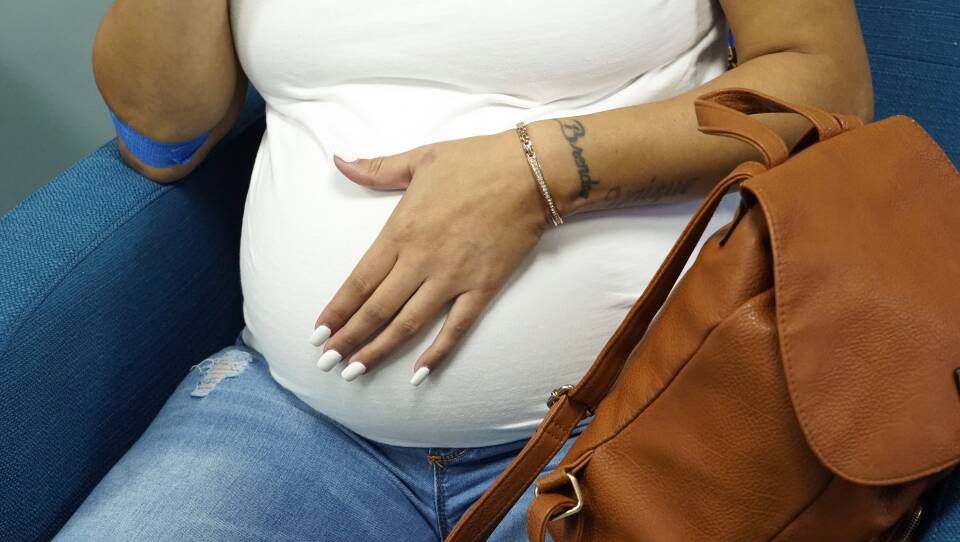Updated on Feb. 6
A recent tragedy in Duxbury has brought postpartum mental health into the spotlight after a mother, Lindsay Clancy, was accused in the deaths of her three children. While authorities have not said whether or not they believe mental illness played a role in that case, similar cases in the past have been linked to mental health conditions, including postpartum psychosis.
Dr. Nancy Byatt, a perinatal psychiatrist at the University of Massachusetts Chan Medical School, says she and other health care providers refer to these conditions as "perinatal mood and anxiety disorders" because patients can experience symptoms either during pregnancy or postpartum. Anxiety and depression are the most common conditions.
"Perinatal mood anxiety disorders overall occur in one in five individuals. Postpartum depression or perinatal depression typically occurring one in seven," Byatt said on GBH's All Things Considered. "Postpartum psychosis, on the other hand, occurs in one to two in 1,000 individuals. So it's far less common and much more rare than any of the other mood or anxiety disorders that we see during this time period."
Postpartum depression often causes thoughts of hopelessness and helplessness, difficulty sleeping and not feeling motivated.
Postpartum psychosis, on the other hand, is a psychiatric emergency.
"It is typically associated with bipolar disorder, specifically, and can be characterized by shifting mental status, psychotic thoughts — meaning losing touch with reality, hallucinations, at times, delusions," said Dr. Leena Mittal, a psychiatrist and chief of women's mental health at Brigham and Women's Hospital, on GBH's Morning Edition.
Byatt explained how women experiencing postpartum psychosis may have delusions that are altruistic in nature. They may believe something is wrong with their baby or with themselves.
"I think what's a common misunderstanding with postpartum psychosis is people often ask, 'How could somebody do this?'" she said. "What's missed is that people actually often do this coming from a place of love and of doing what they feel is best for themselves, for their baby, and even for a greater world or society."
More Local News
Some patients are at higher risk of developing a mental health condition during or after pregnancy, including those who have hormone-related mood fluctuations or experienced a perinatal mental health condition during a previous pregnancy.
Both doctors said stresses of childbirth and pregnancy have a major effect on women's mental health, and the pandemic also has led to an increase in perinatal mood disorders and more awareness around mental health.
"I think a few things have happened. One is that the prevalence itself does appear to have increased," Byatt said. "Second, we also are seeing an increased awareness and increased detection, which is a great thing. There has been recommendations from the American College of Obstetricians and Gynecologists and many other professional societies and policymakers to screen individuals during this time period for depression and also, more recently, fringe disorders as well."
Mittal stressed the importance of mental health screening during this period. She said once a health care provider knows someone is at risk of a perinatal mood or anxiety disorder, they can pursue treatment options including medications and therapy.
"Getting a questionnaire, a short questionnaire, and answering questions honestly about mood is really the first part of getting identified," she said. "Once somebody has symptoms that are identified as high risk for a perinatal mood or anxiety disorder, the next step is really thinking about that, the spectrum of treatment."
On Greater Boston, guests discussed barriers to accessing treatment. Host Crystal Haynes noted that nearly 40% of Black mothers experience maternal mental health conditions, twice the rate of white mothers. Yet they are half as likely to receive treatment compared to white women.
“There aren’t enough mental health care providers. There aren’t enough perinatal healthcare providers. And if you’re looking for culturally congruent care, there are even fewer,” said Jessie Colbert, founder and executive director of the Massachusetts PPD Fund.
Colbert noted that her organization and others are advocating for the Massachusetts Moms Matter Act, which would invest in increasing and diversifying the mental health workforce.
Jamie Belsito, founder of the Maternal Mental Health Leadership Alliance, shared her own experience with mental health struggles as a new mom. "I thought I might not make it through to the other side," she said. "I felt to blame. I felt inadequate. I felt I could not take care of my children. And I felt that if I sought help, that I would be penalized."
Belsito was aware of her own privilege, yet still found it hard to access help, and said that too many new moms struggle in secret. "I am a white woman, living in the suburbs of Boston, married, heterosexual, with a house and private insurance," she said. "I couldn’t find any support systems, and that spoke volumes to me."
She said that an increase in awareness about maternal mental health will hopefully help new moms feel less alone.
“This is the number one complication of all pregnancies," she said.
WATCH: Maternal mental health advocates on the push for access to care after Duxbury tragedy
Correction: This story was updated to correct the headline, which had misidentified Drs. Nancy Byatt and Leena Mittal as psychologists. We regret the error.







